“Life in Tokyo is back to normal”
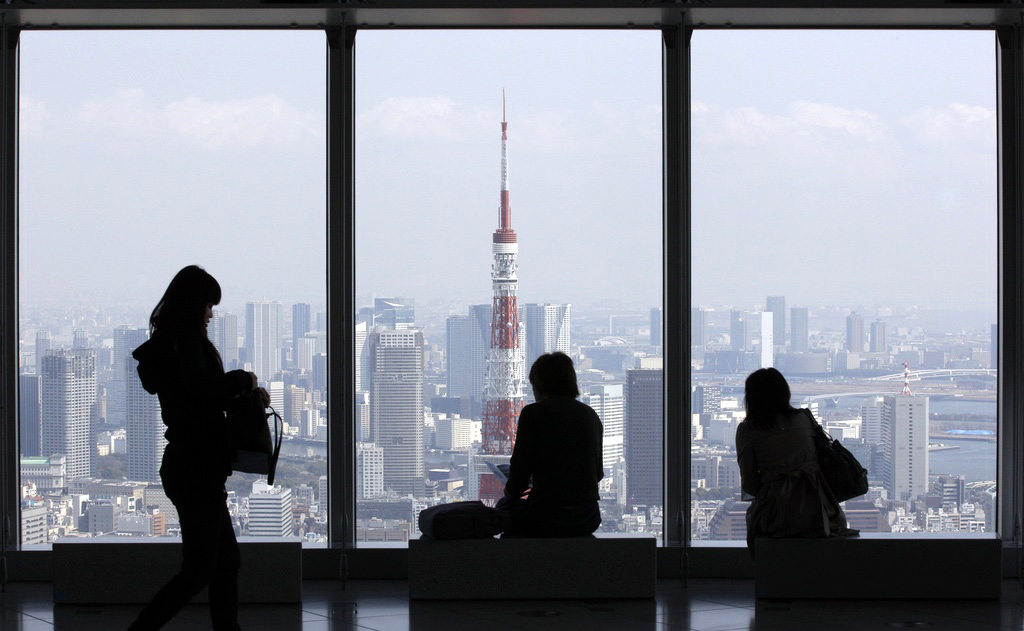
Three weeks after Japan's massive earthquake and tsunami, the situation at the stricken Fukushima nuclear power station 240km north of Tokyo is still out of control.
But Beatrice Ito, president of the Swiss Club Tokyo, tells swissinfo.ch that people are reacting calmly, and that life is more or less normal in the capital.
Since March 11, Japan has been living with the consequences of one of the strongest earthquakes it has ever experienced, which was followed by a tsunami and damage to the Fukushima station.
Bodies are still being recovered, many survivors are still in emergency shelters and high levels of radiation are being detected around the plant.
But the Japanese are optimistic, according to Beatrice Ito.
swissinfo.ch: Earthquake, tsunami, nuclear disaster: do you still feel happy in Japan?
Beatrice Ito: Yes, personally I feel fine.
swissinfo.ch: How do you organise your daily life? There has already been talk of some foodstuffs being irradiated. Is that a problem for you?
B.I.: No, not really. In the beginning, a week after the earthquake, there were some problems: milk and bread were sold out everywhere by the afternoon. Then they were rationed by person or family. And most filling stations ran out of petrol.
But then things went back to normal. Life in Tokyo is as normal as it was before. It’s just that there are moves to save energy: lots of neon advertisements have been switched off, and only about a fifth of the street lamps are lit at night, and some of the escalators at the stations have been stopped.
swissinfo.ch: Your rent out flats in Tokyo. Has your business been hit?
B.I.: Yes. On the basis of foreign media reports lots of people left in a panic. Some of them don’t want to come back at all, but others are slowly returning.
swissinfo.ch: What is the mood like among the Swiss community? Are they frightened? Are there people who have gone back to Switzerland or plan to go?
B.I.: Of course there are people who have gone back. The Swiss embassy keeps us informed. It has also handed out iodine tablets in case of an emergency. Then there was the offer of free return flights to Switzerland and additional charter flights if necessary.
But not even all the seats reserved on the Swiss flight were taken up. So unlike the Germans and French, who immediately left in a panic, the Swiss were a bit cooler about it.
swissinfo.ch: What is the mood like among the Japanese themselves?
B.I.: The mentality of the Japanese is to be very disciplined. They attach great importance to harmony, so as not to have problems with the world around them. That is a great advantage in a disaster like this.
swissinfo.ch: Has the uncritical attitude of the Japanese towards nuclear energy now changed?
B.I.: A little bit, perhaps, but their slightly more critical attitude cannot be compared with the extent of criticism in Europe. I don’t actually know anyone who has become more critical, but I think that people who live near a nuclear power station now do have doubts about the whole thing.
swissinfo.ch: There’s no anti-nuclear power movement in Japan?
B.I.: No. I did actually hear something about a rather small demo in the north, but it didn’t make a big impression.
swissinfo.ch: Even if there isn’t an anti-nuclear power movement, will there be serious discussions in Japan about alternatives to nuclear energy, in the political arena, or privately, or in the media?
B.I.: Most of the talk is about the operating company, Tepco. A lot of people are now very critical of this firm, which seems to have made a lot of major mistakes.
For ordinary Japanese, Tepco is primarily to blame for what has happened now. The media are also criticising the company. Some people are already saying the state should take over Tepco. But it is questionable how much good that would do.
swissinfo.ch: There is said to be an unhealthily close relationship between Tepco and the Japanese political elite. Are people now challenging this?
B.I.: I think a lot of people see a connection here. Whether Tepco continues to operate the power station, or whether the state takes it over, won’t make a lot of difference.
swissinfo.ch: Japan is regarded as being at the cutting edge technologically, and having everything under control – or that was the view until the power station disaster. Is this image still intact as far as ordinary Japanese are concerned, or has it taken a hard knock?
B.I.: Among the Japanese whom I am in contact with personally, I really haven’t seen any great change in attitudes towards that. People think the crisis can be overcome, and that everything will be alright again. In any case, their hopes are stronger than their doubts.
swissinfo.ch: What would you advise to Swiss wanting to go to Japan in the near future: is it better to wait, or come in spite of everything?
B.I.: (laughs) Friends of ours wanted to come to Japan on honeymoon on March 20. I told them it might not be the right time, because no-one knew exactly what was happening – whether, for example, all the trains were running. There is no guarantee that everything is working 100 per cent – and normally in Japan everything does work 100 per cent.
The club was founded in 1976 and has about 350 members.
The club is a non-profit organisation that helps Swiss in and around Tokyo stay in touch with their home country.
Events at Swiss clubs are popular with other expats, such as Germans, as they are “less formal” than those of other expatriate clubs, says the president.
Favourite events are a ski-weekend, a celebration for August 1 National Day, hiking, raclette evenings and a Christmas party.
The club publishes an annual Swiss Gazette.
The club is supported by Swiss companies in Japan. It has an education section which coordinates the education of children at the German school in Yokohama and funds a Swiss teacher for the school.
In Japan there is also a Swiss Society of the Kansai which organises events in the greater Kobe-Osaka-Kyoto area.
Japan’s Fukushima Dai-ichi nuclear complex has been spewing radioactivity since March 11, when a magnitude-9.0 earthquake and ensuing wave knocked out power, disabling cooling systems and allowing radiation to seep out of the overheating reactors.
The plant operator is trying to restore control over all reactors at the plant. It is also spraying resin onto radioactive dust to stop it being carried in the wind.
So far, 11,800 deaths have been confirmed. More than 15,500 people are still missing.
Three weeks after the twin disasters, more than 165,000 people are living in shelters, 260,000 households still do not have running water and 170,000 do not have electricity.
Japanese manufacturing activity slumped to a two-year low in March and posted the sharpest monthly fall on record.
The estimated cost of damage is to top $300 billion, making it the world’s costliest natural disaster.
(Translated from German by Julia Slater)

In compliance with the JTI standards
More: SWI swissinfo.ch certified by the Journalism Trust Initiative
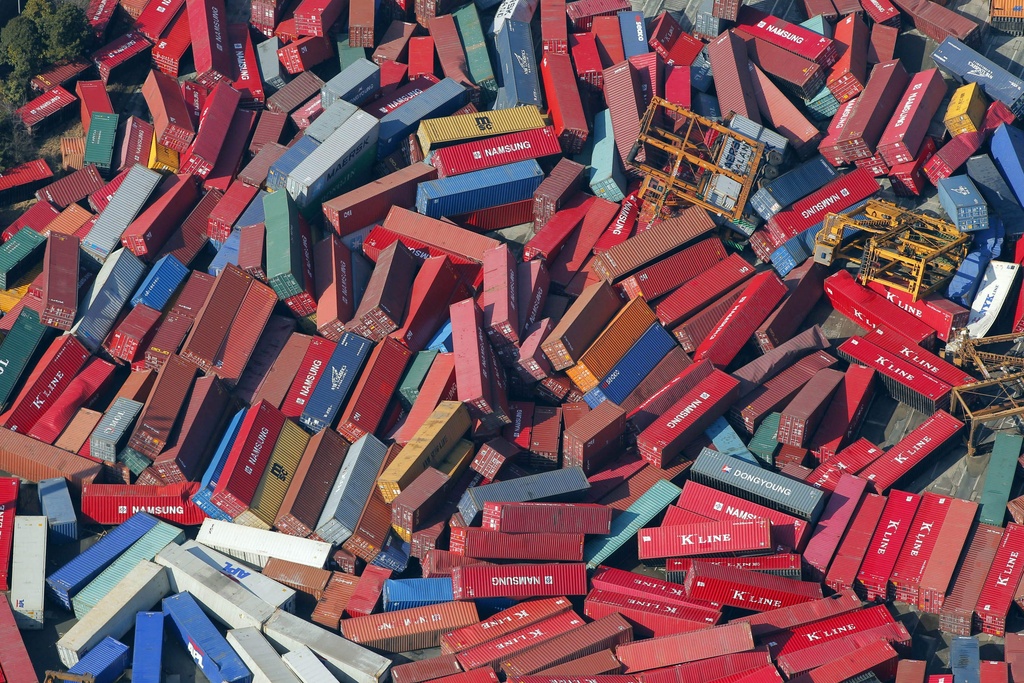
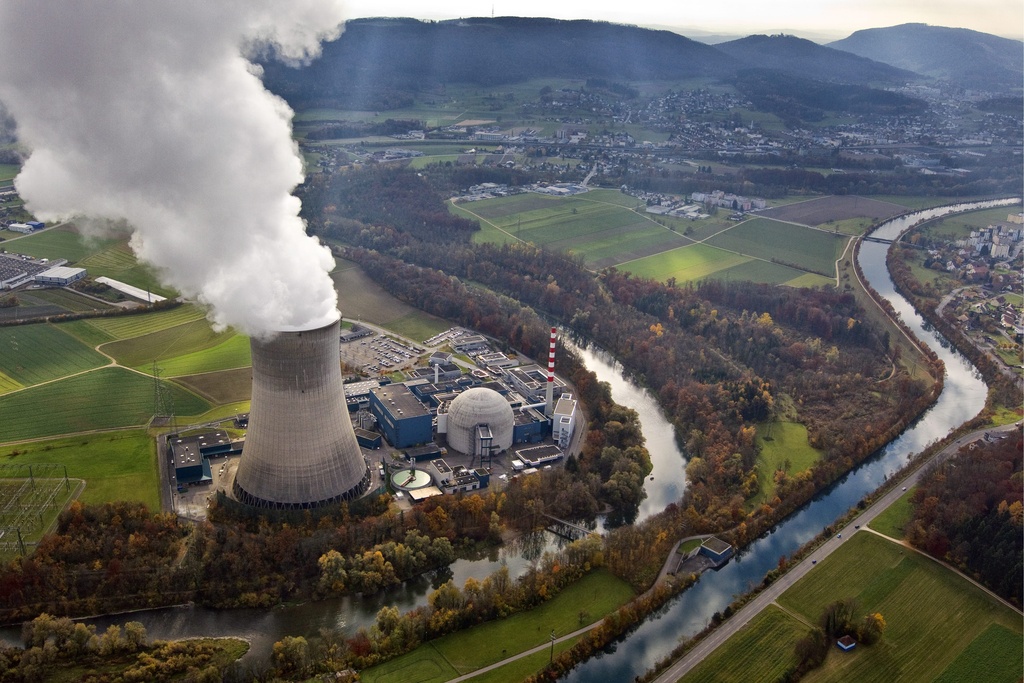
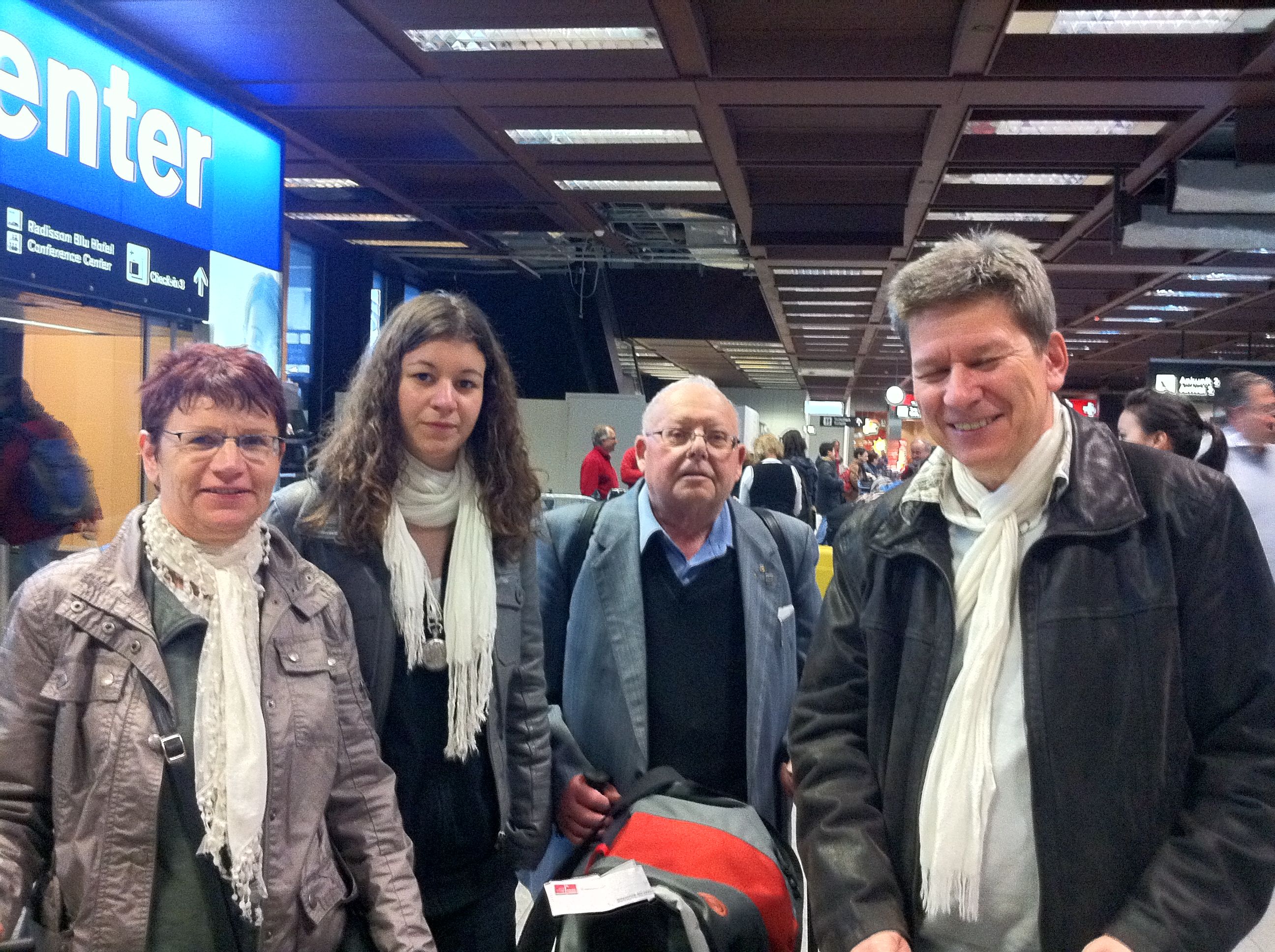
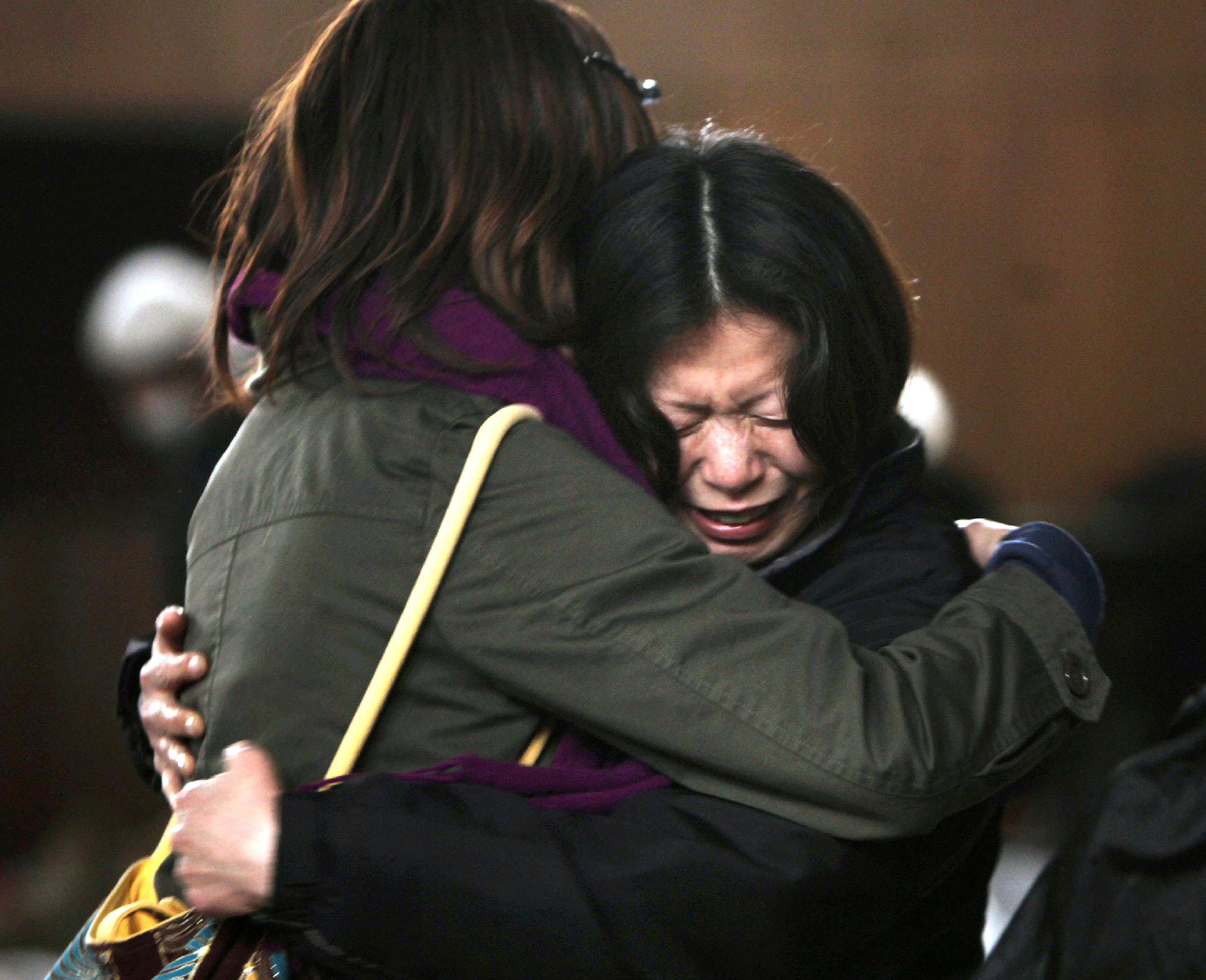
You can find an overview of ongoing debates with our journalists here. Please join us!
If you want to start a conversation about a topic raised in this article or want to report factual errors, email us at english@swissinfo.ch.